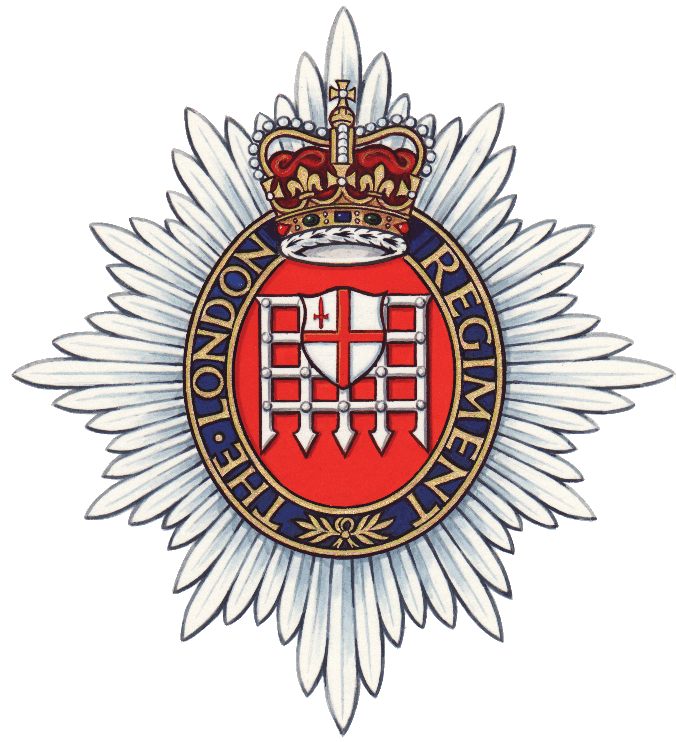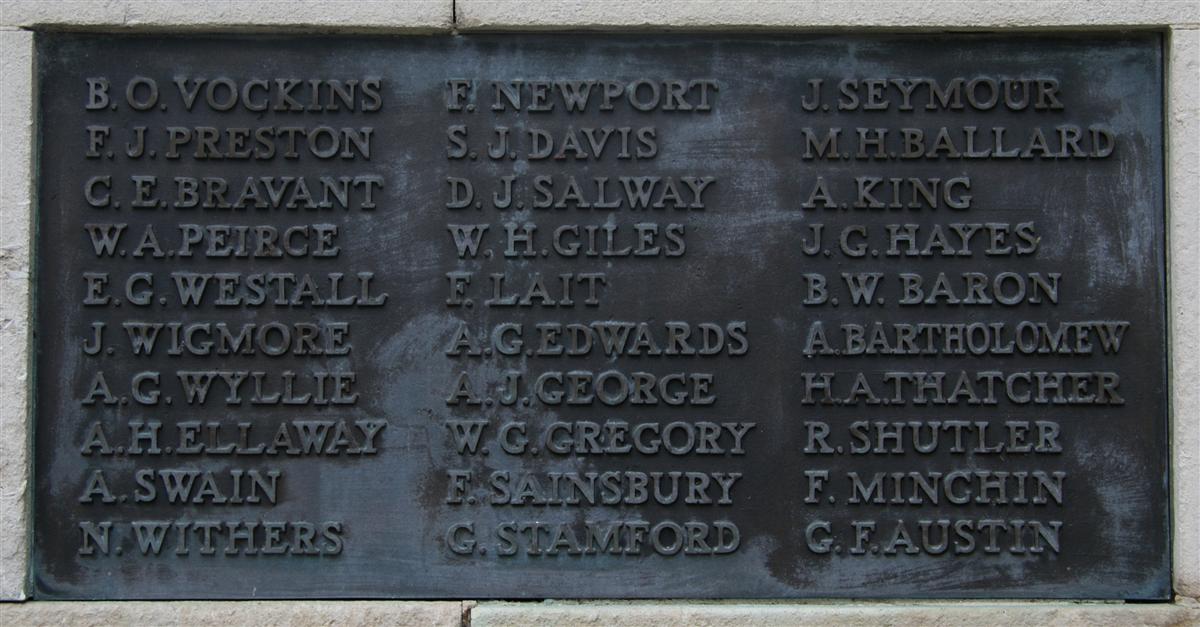Charles Edwin Bravant
Private 3105 Charles Edwin Bravant, 1st/23rd London Regiment
Charles was born in Newbury in 1893, the son of Francis Richens Bravant and his wife Alice, née Beech. Theirs was a relatively small family by the standards of the day, only three children. The eldest was Francis William (born 1890) and the youngest Dorothy (1895).
Francis senior was an solicitor’s clerk/accountant and, for a while, Registrar of Marriages for Newbury (an office he may well have ‘inherited’ when his father, William Isaac Bravant, died in 1894. The family lived at a number of addresses around the town and even, in 1901, over the county border in Newtown; by 1911 they has moved to Hampstead Marshall, and Alice was working as a schoolmistress (probably at the village school). On census night Francis senior was with his mother and sister in Thatcham .

Christ's Hospital. |
A Christ’s Hospital education was an excellent preparation for Charles to follow a career as a clerk. His father’s choice of such a profession could suggest that he too had been to Christ’s – raising the odds that the Bravants were related to Frances West.
Charles began his career with Day & Porter, auctioneers and valuers with offices in the Market Place, Newbury. He then moved to work at the Government valuation office at High Wycombe. This was the time of the national Valuation Survey, carried out to support the introduction and collection of a new tax on the rise of land values – a great many land valuers would have been required to carry out the massive task of valuing every property in the land. He was still at High Wycombe when war broke out; he and five of his colleagues from the valuation office enlisted on the same day.

The regimental badge of the London Regiment. (wikipedia) |
The 1st/23rd London Regiment formed part of the 142nd Brigade, 47th (2nd London) Division – the infantry for which were all from the London Regiment (1st/13th to 1st/24th battalions). The Division crossed to France in March 1915.
The following month Charles wrote home:
Newbury Weekly News, 22 April 1915 – Local War Notes
Pte C Bravant, of the 1/23 London Regiment, son of Mr and Mrs F R Bravant, of Hampstead Marshall, writes home from the trenches and tells of exciting experiences. Shells were flying in all directions, Jack Johnsons exploding with terrific noise, but the opinion seems to be that the British artillery has the upper hand. It is the snipers that give trouble. My word, we have exciting times at nights. We were working under fire, and the Germans sent up a flash rocket. Of course, we dropped on to the ground at once, but they got one of our fellows, not seriously. Next night it was all ducking and dropping. The bullets whizzed over our heads. We had to take things to the first line, about 200 yards from the German trench. This was the most dangerous of all, but cautiously advancing and dropping when the flash rockets went up, we arrived safely and got back again after being under rifle fire for two and a half hours. Still we have some jolly times, although rough ones. Am now going out to get some wood. Motto, “Keep your head down.”
Little after a month later he was dead:
NWN 24 June 1915 p8 – Local War Notes
Mr and Mrs F R Bravant, of Hamstead Marshall, have received information as to the death of their son, Private Charles Bravant, of the 1st 23rd London Regiment. The intimation was not official, but nevertheless appears to be circumstantially correct. A comrade writes:- “As one of his regimental chums, I feel it my duty to let you know the circumstances of his death. He came through the charge safely, and was resting against the captured German barricade, when he was hit by a bullet, which seemed to come through the sandbags. The bullet went into his head, and he fell back unconscious, dying an hour or so later almost in my arms. He uttered no sound, and could have suffered no pain, His surviving comrades wish to offer their deepest sympathy in your great loss, and we trust it wull console you to know that he died a painless and glorious death, doing his duty to the very last.”
Private Bravant was educated at Christ’s Hospital, and was subsequently in the office of Messrs Day and Porter, Market-place. At the time of enlistment he was engaged in the Government valuation office at High Wycombe, where he secured the respect and appreciation of all the other members of the staff. Six young fellows in the same office enlisted at the same time. Two have been killed, one badly wounded, two slightly hurt, one alone escaping injury.

Charles's name on Newbury War Memorial (upper left) |
He has no known grave and is commemorated on the Le Touret Memorial, not far from where he fell.
Locally he is remembered on Tablet 4 of the Newbury Town War Memorial.

Find a memorial :
| Died this day: | |
| 02 March 1943 | |
| K F Bartholomew | |
| Thatcham |

Like this site? Show your appreciation through a donation to a great charity.